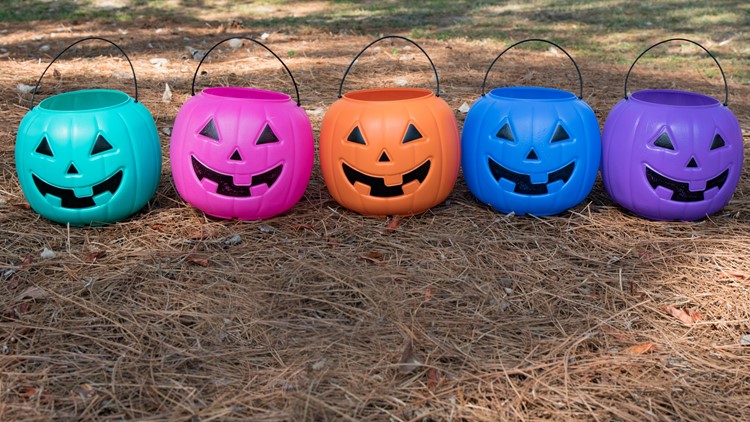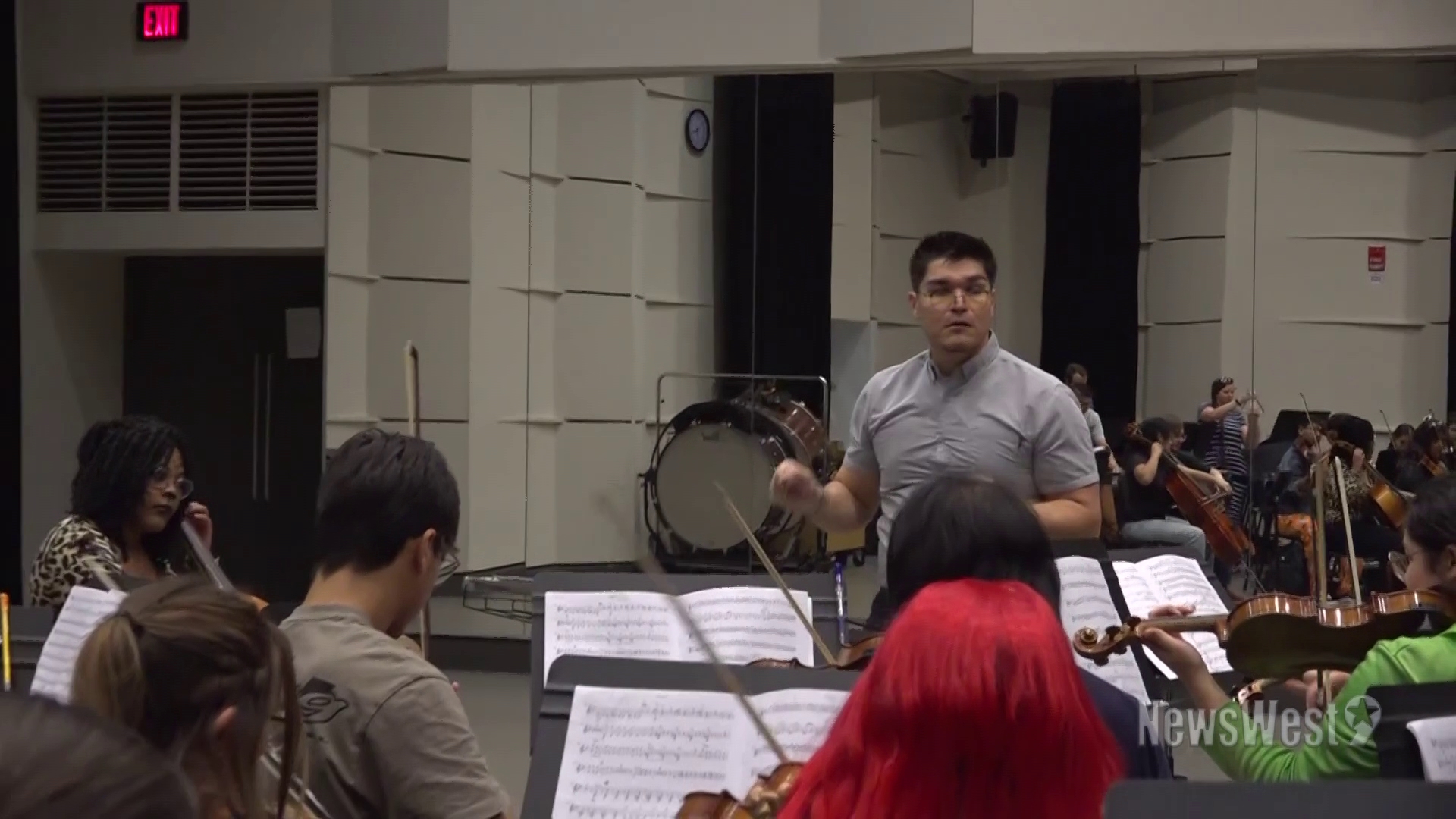WASHINGTON — Trick-or-treaters are set to embark on their journey from house to house, filling their buckets, bags and pillowcases with loads of candy on Halloween night.
Some candy lovers and Halloween enthusiasts may notice different-colored gourds on display this year as more people rely on non-traditional pumpkins to raise awareness.
Here's everything you need to know about pumpkin colors before you head out to trick-or-treat.
What do teal pumpkins mean
Teal pumpkin buckets are used as a signal to let others know that a child has a food allergy. The "Teal Pumpkin Project" started as a safe by the food allergy community of east Tennessee to help make trick-or-treating more inclusive and safe for children with food allergies.
A teal pumpkin outside of a house may signal to trick-or-treater that the homeowner have other non-food treats or toys that are safe for all children.
According to Food Allergy Research and Education, one in 13 children have food allergies.
What purple pumpkins on display mean
Purple pumpkins are linked with the "Purple Pumpkin Project" aimed to help spread awareness on epilepsy. The project started in 2012 by a father in Connecticut looking to raise awareness after his son's diagnosis.
Purple pumpkins on display may also signify that someone there has or knows someone with epilepsy. According to the Epilepsy Foundation, over 3.4 million people live with epilepsy in the U.S.
What do blue pumpkins mean
Blue pumpkins or blue pumpkin buckets are used as a sign that a child may have autism or a sensory processing disorder. While the blue pumpkins aren't tied to an official fundraiser or organization, the blue-colored pumpkins are used to raise awareness of autism.
It's important to be mindful that children with autism and sensory processing disorders may be non-verbal and could have sensitivities to costumes and decorations.



